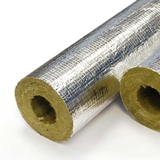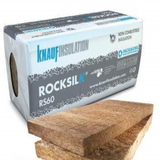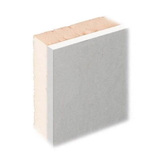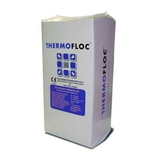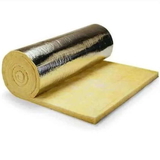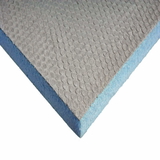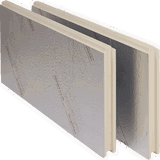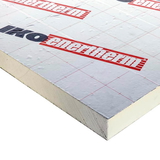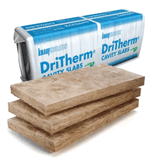- Blogs
- How to make your home energy-efficient
How to make your home energy-efficient

Modern-day homes must meet the benchmark of energy-efficient construction. Your home will stay warmer in the winter and cooler in the summer when it is energy-efficient. You will help the environment, save money and waste fewer resources.
First off, what does it mean to make your home energy-efficient?
Energy efficiency is a technique used for lowering energy consumption by requiring less energy to provide the same amount of useful output. Simply put, it means getting more done with less.
Why make your home energy-efficient?
- An energy-efficient home aids in reducing your dependency on harmful fossil fuels
- It helps monitor and control energy consumption.
- It saves hundreds of pounds that are otherwise spent on energy bills.
- It helps to protect wildlife habitats and the environment.
All of these are compelling reasons to reduce the energy we consume at home. Here are some pointers on how to make your home more energy-efficient:
Loft insulation:
Just as you put on a woollen hat when it gets cold, you insulate your loft and stop the heat loss through the roof. Loft insulation is also an ideal investment as it lasts longer and helps decrease energy bills.
Roofs that aren't well-insulated waste too much energy. Depending on where you reside and the type of your house, you might save between £120 and £225 a year with proper loft insulation.
Exterior/ Cavity wall insulation:
Some houses contain empty gaps between their inner and outer walls, which causes one third of the heat loss through walls. Insulation in these areas can be installed without making a mess inside your home and are less expensive.
Cavity wall insulation could save you up to £165 yearly in heating bills. It is why the cavity wall insulation is also a good investment as you are likely to recoup your installation costs in five years or less.
Floor insulation:
Floor insulation saves a modest amount of money compared to wall or roof insulation, but the methods are easier and less expensive. Keep your home warm by insulating the ground level. You can insulate the upper floors only if they're over unheated areas like a garage.
Update your boilers:
Did you know that inefficient boilers can cost you several pounds in energy bills? They are a major source of high energy expenses in a home. Your boiler is responsible for 55 per cent of your energy bills.
That means upgrading your boilers could be a smart method to save money in the long run. So, if you haven't had a new boiler in the last ten years, think about upgrading.
Boilers are rated from A to G in terms of energy efficiency, with A being the most energy-efficient. If yours is on the lower end of the range, replacing it with an A-rated boiler could save you money in the long term.
Draught-proof windows:
You cannot maintain your indoors at a pleasant temperature if there are air leaks in your home. Draught proofing helps to inspect such leaks around doors and windows, sealing them to stop the air from sneaking in or out.
Insulate your windows:
Insulating windows is one of the simplest and most immediate ways to make a home more energy-efficient. Even if the heating is turned up, a draughty room is uncomfortable in the winter, so it's a good idea to invest in some energy-efficient double-glazed windows. You may save up to £160 a year on heating bills by doing so, not to mention the increased comfort you'll experience.
Hanging thicker curtains over windows will keep the heat in your home and make it much cosier, especially as the evenings grow longer.
Pipe insulation:
It is necessary to insulate every part of the home to help make it energy-efficient. Pipe insulation isn't the first thing that comes to mind when you think of places to insulate, but it's crucial nonetheless.
Pipe insulation helps in reducing your overall energy consumption. It contributes to lower energy bills and keeps your home warmer. It protects your plumbing system and increases its durability. It also helps keep issues like frozen pipes, condensation problems at bay.
Little things matter:
Small lifestyle modifications can add up to a considerable reduction in energy consumption:
- Turn off your appliances and gadgets, when you do not need them.
- Instead of using artificial lighting, make use of natural light.
- Wash your clothes in cold water and hang them to dry rather than using a dryer.
- Reduce your thermostat by a few degrees. It can help you save money without having too much of an influence on your home's overall temperature.
- By reducing the shower time runs by just one minute, you save £10 on your annual energy bill.
- Consider using solar panels to create some of your heat or power.
- Change your current energy provider. Your energy provider may not be the cheapest, so switching your service provider could save you money.
Conclusion:
Every step you take towards making your home more energy-efficient, no matter how insignificant, can make a difference in the big picture. Keep this in mind as you take whatever steps you can. Not only can a well-insulated, energy-efficient home help cut your bills and increase the value of your home, but it can also contribute to a cleaner, greener environment for all of us.
We can assist you in making your home an energy-efficient home on a budget. Buy insulation online offers you a wide range of high-quality insulation solutions at highly competitive prices. Visit Buy insulation online today!

Samuel Hitch
Managing Director
Buy Insulation Online.
Leave A Reply
Your feedback is greatly appreciated, please comment on our content below. Your email address will not be published. Required fields are marked *
